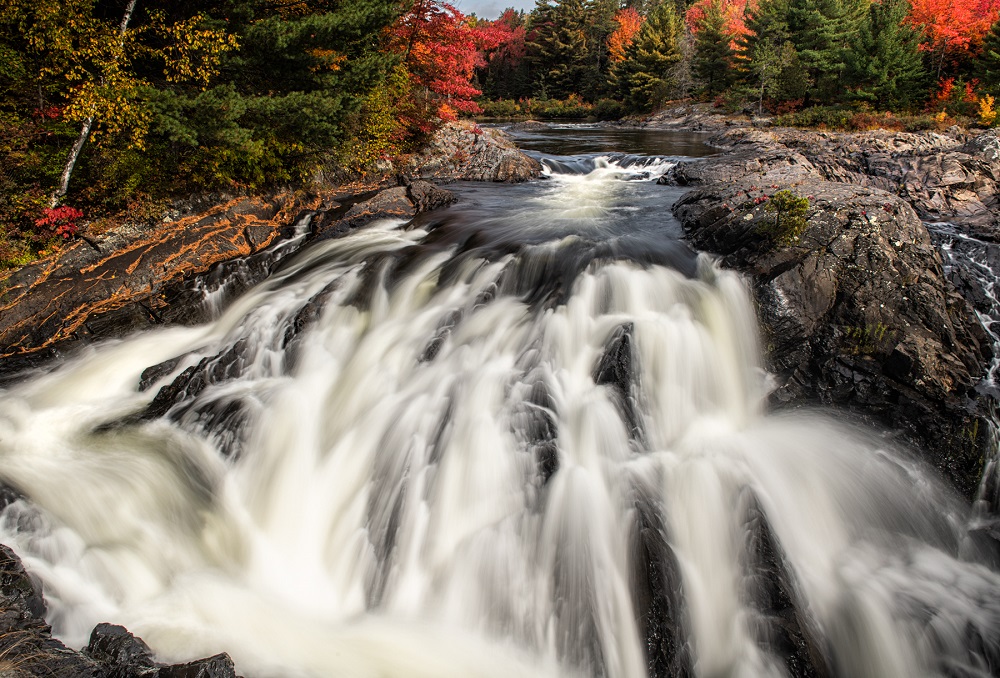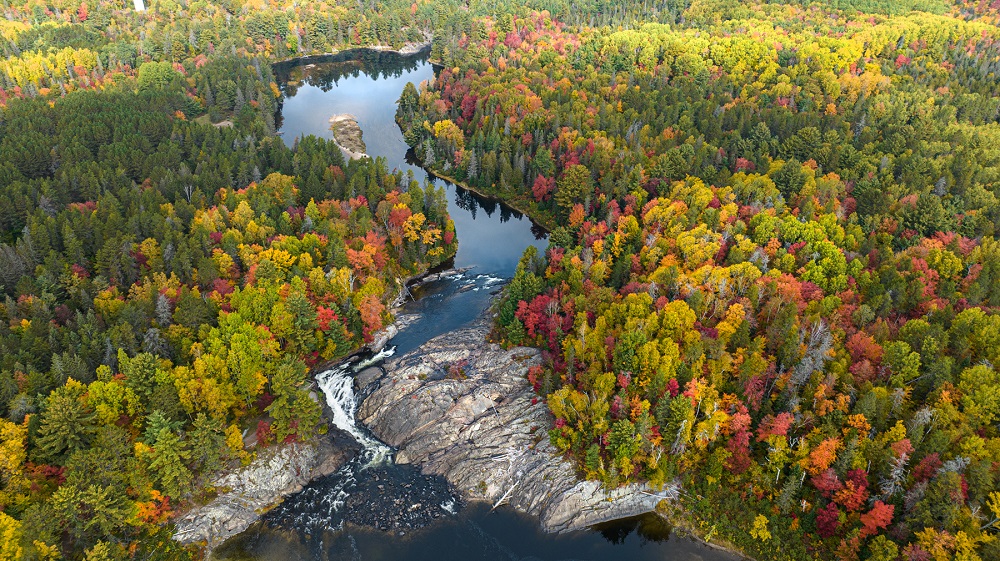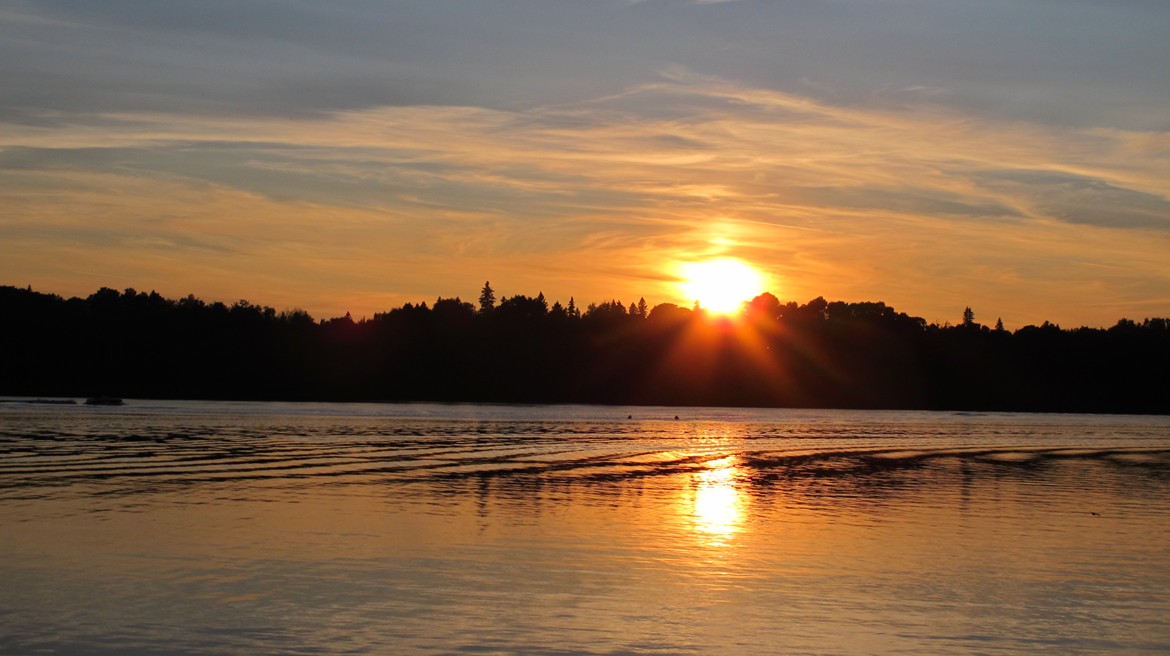
Situated between Sudbury and Sault Ste. Marie, Chutes Provincial Park is a little gem with so much to offer.
With amazing views, a rich history, and a full-service campground, Chutes provides the perfect basecamp to explore surrounding attractions.
Check out these five reasons to visit Chutes:
~
1. Waterfalls everywhere
If Chutes has a signature sight, it’s waterfalls!
Falls Lookout is a wide platform right at the lip of the main falls in the park.
Even in summer when the river’s flow is much less than in spring, the power of water shows its strength, cascading right in front of you.
Follow the Twin Bridges Trail upstream along the Aux Sables and you’ll pass a series of rapids, cascades, and waterfalls that form the heart of the park.
These are the Seven Sisters.
~
2. A rushing river
The Aux Sables River flows south from the highlands of the Penokean Hills. These roots of an ancient mountain range once as high as the Rockies have now become rounded nubs.
The river’s name, Rivière Aux Sables, refers to the river’s sandy shores. Besides the park’s beach, much of the river within the park’s boundaries tumbles over ledges, through channels and rocky rapids.
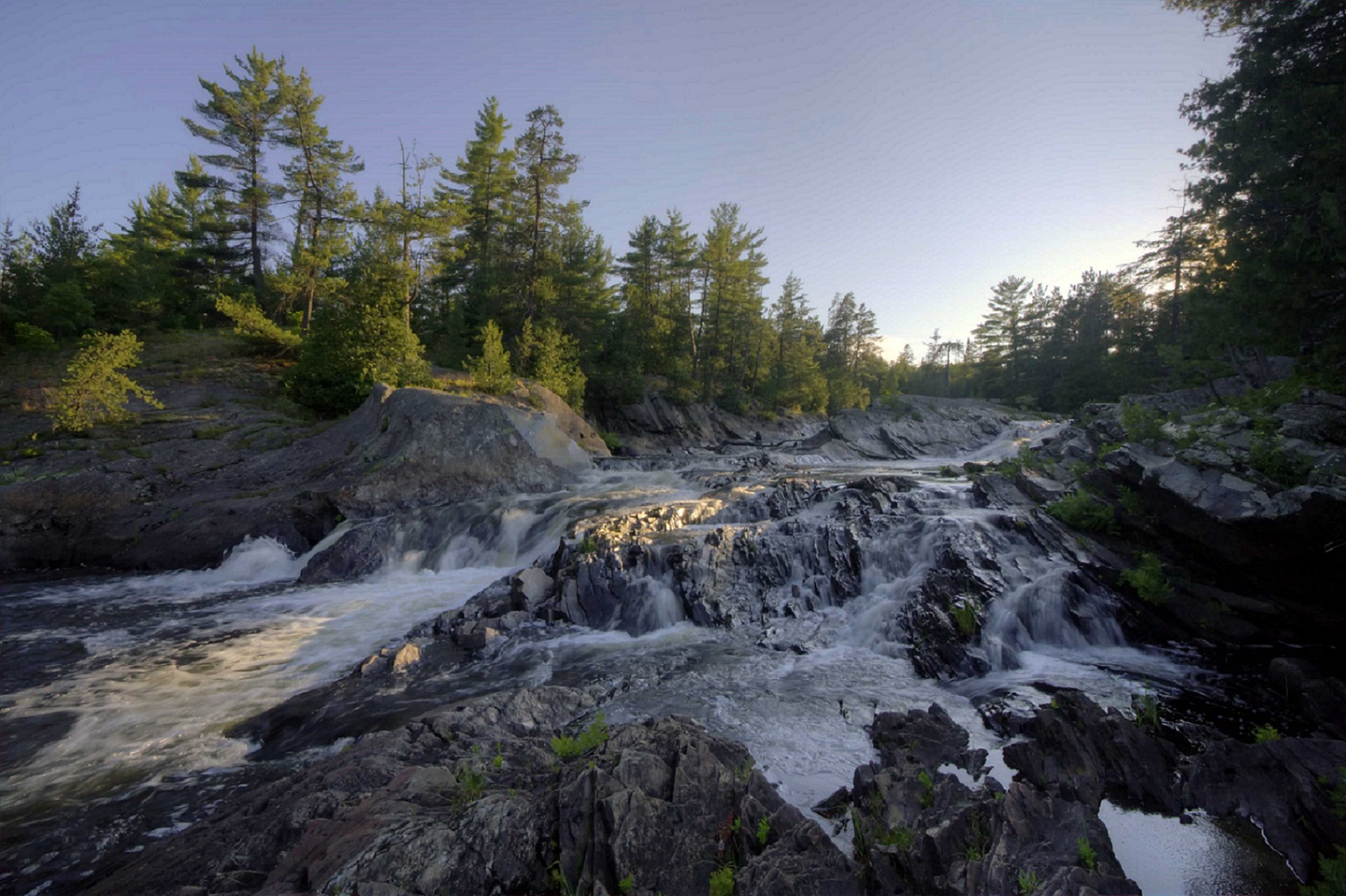
The Twin Bridges Trail follows the river, passing several viewpoints and lookouts, providing visitors places to stop, relax, and be surrounded by nature, soundtracked by the soothing sound of moving water.
~
3. A rich history
Surprisingly, Chutes Provincial Park is not named for the French translation of waterfalls, chutes d’eau, but for the long wooden “chute” that spanned its length a hundred years ago.
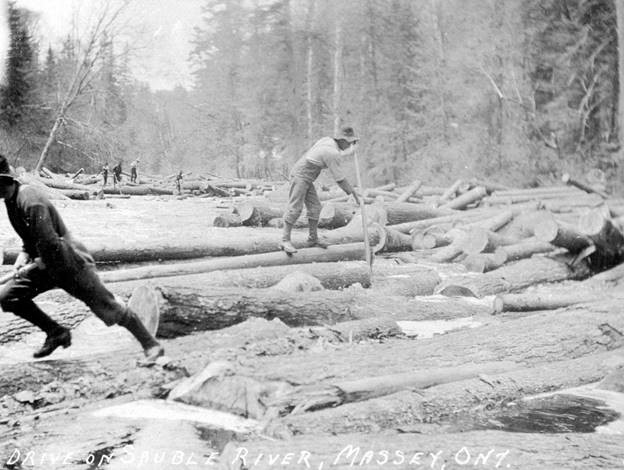
Lumberjacks were “hurlin’ down the pine” in those days, felling tall White Pines and driving them down northern rivers to the mills, long before roads reached the area.
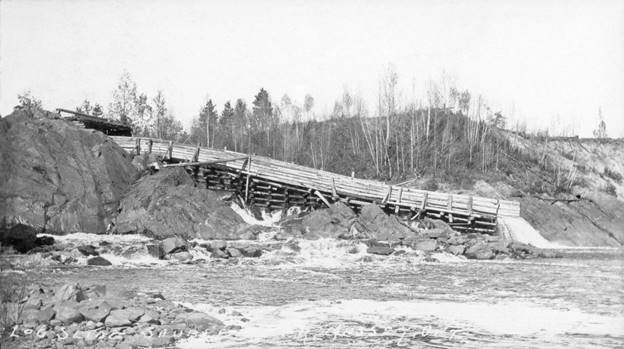
To prevent logs from tumbling over waterfalls and being damaged, the loggers built log chutes – wooden trestles filled with water – that the logs were sent through to be safely transported over the falls.
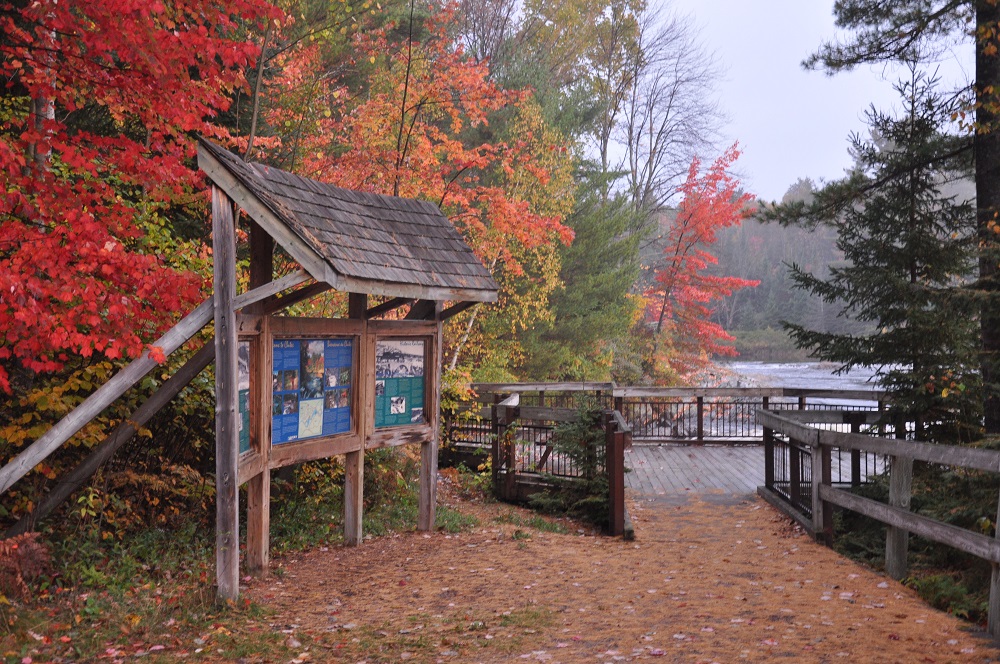
Interpretive panels at the Falls Lookout tell the stories of those lumberjacks.
~
4. “Fall” for our fall colours
Fall is a great time to visit parks, and Chutes is no exception.
The river and its waterfalls, cascades, and rapids reflect the reds, golds, and burgundies of the changing fall leaves, making the park a “picture-perfect postcard.”
Keep up with the Fall Colours Report to see the Chutes’ colour progression!
~
5. Explore the area
Chutes is just an hour west of Sudbury on the Trans-Canada/Highway 17, and 20 km north of Lake Huron’s famous North Channel.
Book a campsite in the park’s full-service campground and use it as a base for exploring this region.
~
Sudbury
Visit this festival city in the summer, with Northern Lights Festival Boréal and the Sudbury Blueberry Festival among the highlights.
Sudbury is also home to two amazing science centres – Science North and Dynamic Earth – both interactive and perfect for families.

Don’t forget the Big Nickel!
~
Manitoulin Island
Manitoulin Island is the largest freshwater island in the world.
To residents of the region, it is simply called “The Island.” Home to quaint villages, unique shops, and restaurants, the island is a must-visit.
~
Cultural heritage
Manitoulin Island is a hub for Indigenous artists with many art galleries and museums to explore. Communities host powwows through the summer, with dancing, drumming, and other events featured.
The Great Spirit Circle Trail offers nature-based and cultural tourism experiences from an Indigenous perspective.
~
Try a trail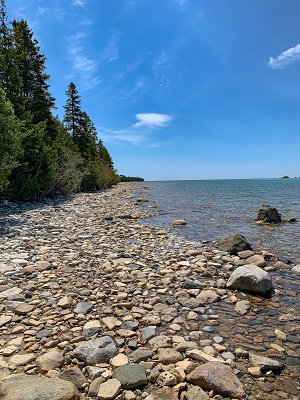
Explore the region by foot on one of the many trails:
The well-known Cup and Saucer Trail on Manitoulin Island explores the high points of the Niagara Escarpment landscape that extends from the Bruce Peninsula north to the island.
Also on Manitoulin, Misery Bay Provincial Park is a trail-filled nature reserve that protects globally rare limestone pavement habitat called “alvars” and is home to many rare flowering plants.
Mississagi Provincial Park, an hour to the northwest, has fantastic hiking trails that pass through a variety of forests, featuring panoramic lookouts.
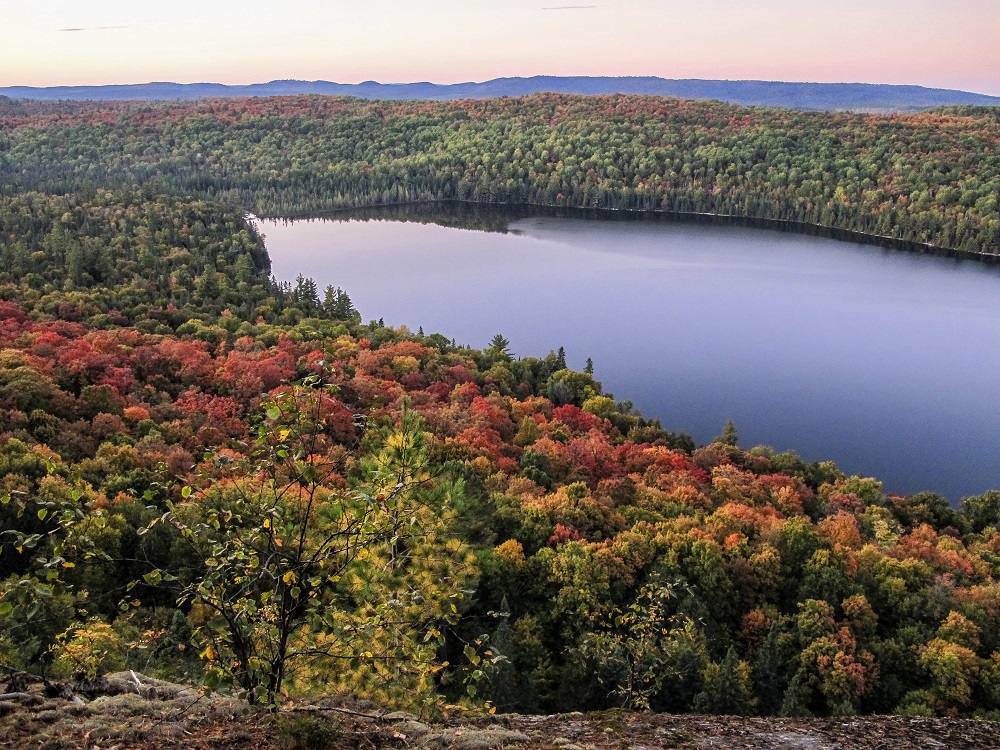
Willisville Hiking Trail and Heaven’s Gate Trail wind across the western portion of the La Cloche Mountains, the white quartzite hills that make Killarney Provincial Park famous.
~
Planning a visit?
The campground is conveniently close to trails and the river, and contains both electrical and non-electrical sites. A comfort station with hot showers, flush toilets, and laundry facilities is centrally located.
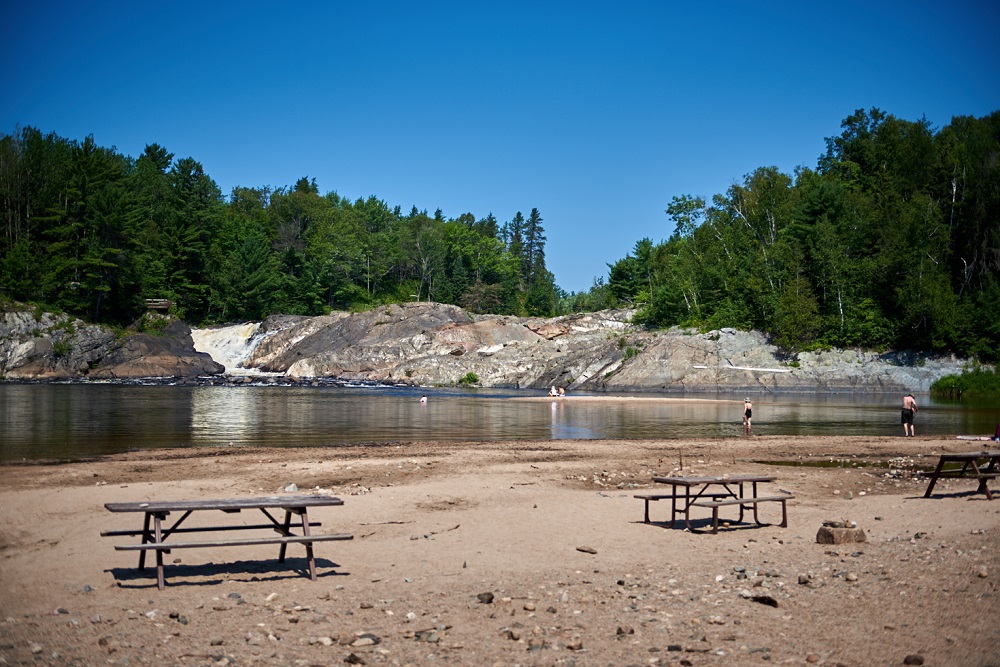
The day-use area is centred on the park’s sandy beach and swimming area, which also has a fenced, leash-free pet exercise area with access to the water.
Picnic tables and a picnic shelter can be found here as well.
~

